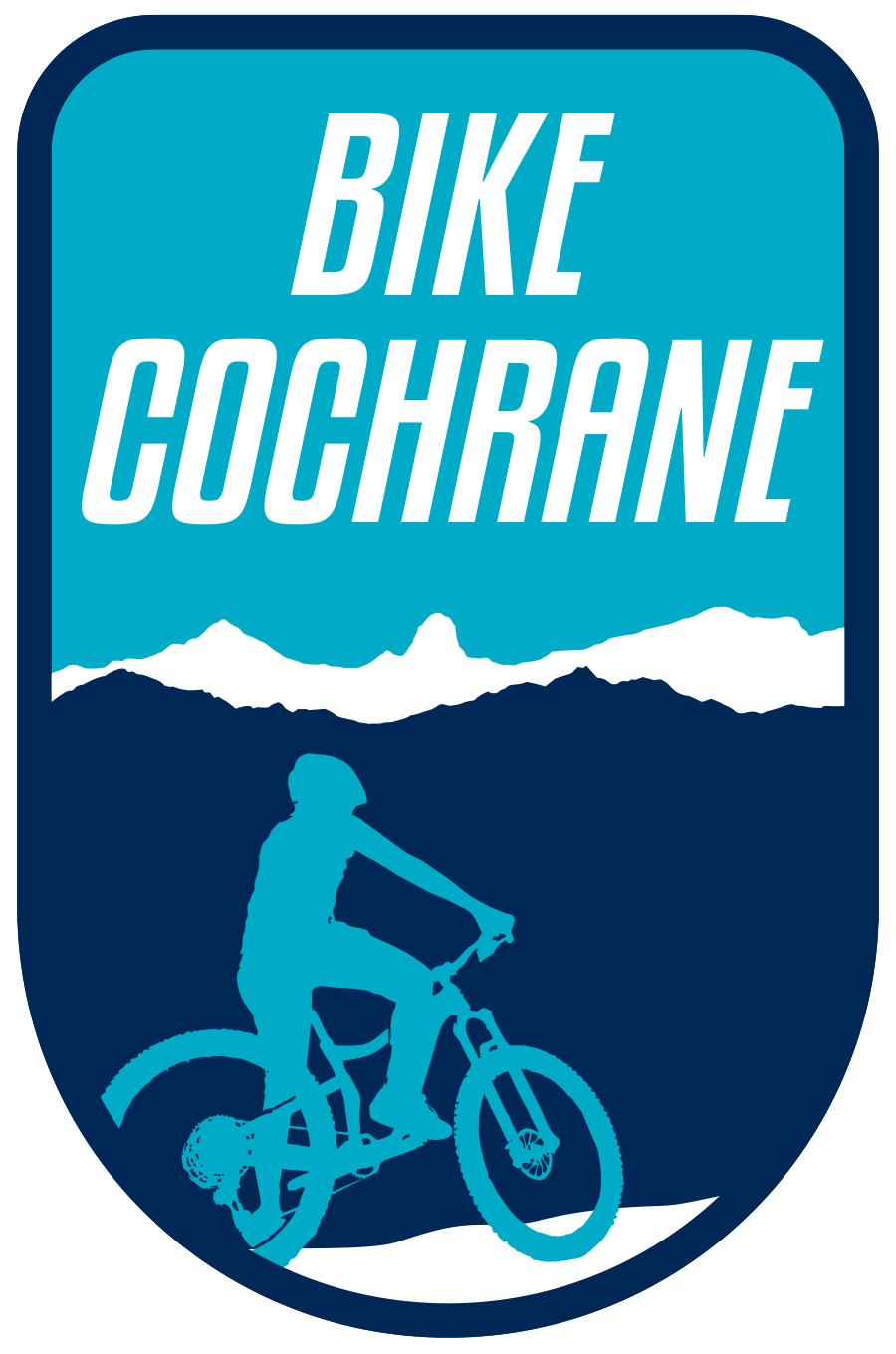How We Build Trails
Sustainable Trails are Bike Cochrane’s focus
Example trailhead and enroute signage in Cochrane
Trail DESIGN
Bike Cochrane follows the IMBA Canada trail-building program, and maintains our trails to an insurable standard following the Whistler Trail Standards. We want our trails to be high-quality, playful, and sustainable.
High-quality trails are environmentally and socially sustainable, are economically responsible, and they provide the targeted outcome -> they’re FUN TO RIDE!
Playful trails make you laugh and giggle while you’re enjoying your time in our green spaces.
Sustainable trails are environmentally sustainable, economically sustainable, and socially sustainable too.
All landowner-approved and legitimate access trails will be signed and mapped as illustrated on the left. This is done to help all users navigate and enjoy the beautiful areas in Cochrane, while respecting the environment and all the considerations needed for the approved trail to exist. All of the trails that Bike Cochrane manages are mapped and illustrated on our trail maps HERE and HERE.
11 steps of trail design
Bike Cochrane has hosted multiple Trail-Building Workshops for our Trail Crew over the last few years. We focus on a large number of factors that go into trail design that allow us to build a trail once and not have to rebuild it many times over the years. Being aware of water and its damaging effects to trails is critical to ensuring long-term sustainable trails. Looking at trail-building foundations like slope, trail tread, out-slope, water-management, and many others allows a trail design to be a long-term asset.
While Bike Cochrane takes trail design very seriously, it’s important to note that our land partners at Cochrane and District Agricultural Society, the Town of Cochrane, and Mount St Francis Retreat Centre always have the decision-making authority on all trails since it’s THEIR LAND. We are proud to work with these great land partners!
Important local factors that go into assessing whether a trail should or should not be built are: Water Act, Historic Resources Impact Assessment, Firesmart, and Wildlife Conservation. See on the right an example scorecard used to assess the proposed Rivercrest Trails.
IMBA Canada Trail Design Steps
Considerations in Building Trails in Cochrane
Bike Cochrane’s All-Volunteer Trail Leaders
Our Trail crew
Our 100% volunteer trail crew donated over 1700 hours of our time in 2023 to maintaining, trimming, pruning, building, and managing our trail network in Cochrane. See our trail leaders on the left and a summary of ‘WHY DO WE DO THIS?’ below.
If you’re passionate about trails, PLEASE join us by emailing trails@bikecochrane.com and join the crew!






